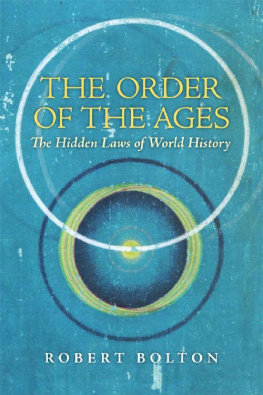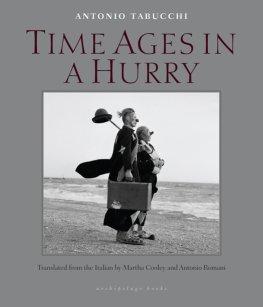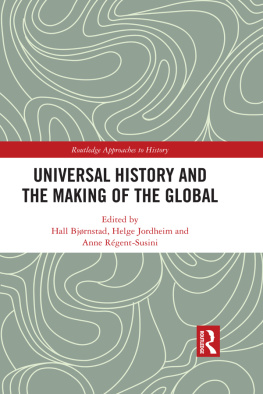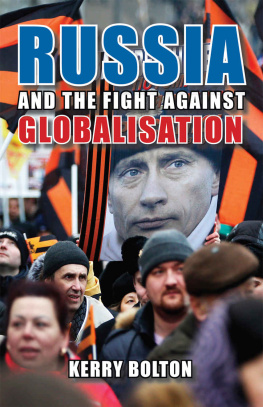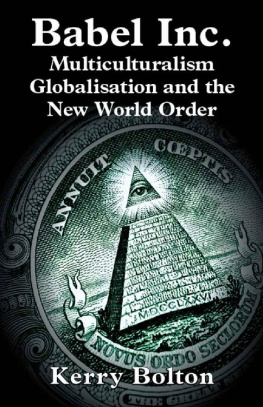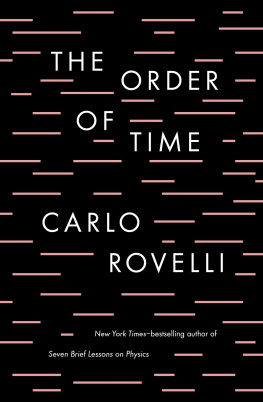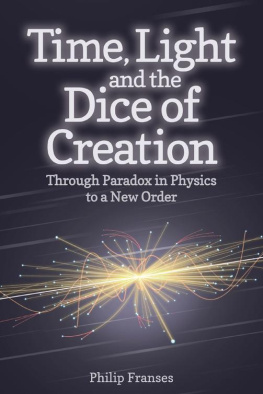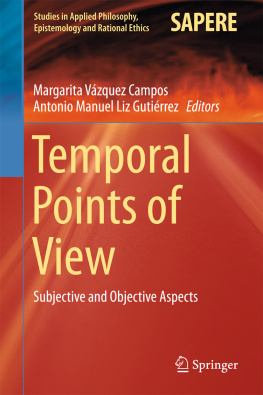The Order of the Ages
The Hidden Laws of World History
by the same author
Person, Soul and Identity
The Logic of Spiritual Values
Keys of Gnosis
Self and Spirit
The One and the Many
Foundations of Free Will
ROBERT BOLTON
The Order of
the Ages
The Hidden Laws of
World History


First published in the USA
by Sophia Perennis, 2001
Second, revised edition 2008
Third, revised edition
by Angelico Press/Sophia Perennis 2015
Robert Bolton 2015
Series editor: James R. Wetmore
All rights reserved
No part of this book may be reproduced or transmitted,
in any form or by any means, without permission
For information, address:
Angelico Press
4709 Briar Knoll Dr.
Kettering, OH 45429
angelicopress.com
Library of Congress Cataloging-in-Publication Data
Bolton, Robert (Robert A. N.), 1941
The order of the ages: the hidden laws
of world history / Robert Bolton
p. cm.
Includes index
isbn 978 1 62138 121 1 (pbk: alk. paper)
1. TimeReligious aspects I. Title
bl 65. t 5 b 65 2001
Cover image: Augsburger Wunderzeichenbuch
Folio 136: Nebensonnen bei Schnfeld 1538
c. 1552
Cover design: Michael Schrauzer
With special acknowledgement to Ruth Yendell for
her work in correcting and amending the text,
and to Stratford Caldecott, without whom
the idea would never have gone so far.
But there is no one who can
grasp the whole order of the ages.
S t Augustine , Of True Religion
CONTENTS
Cyclic Time and ProgressThe Need for a Theory of TimeA Reason for Pessimism?Modern and Ancient Sources
History and Absolute ChangeSelf-Neutralizing ChangeRecurrence and Actual ChangeCivilization and the Natural OrderAbstract and Concrete TimeFreedom and Cosmic Conditioning
The Cause of Cosmic DescentPlenitude Understood in AntiquityThe Real and the PossibleThe Finite and the InfiniteThe Reality of Created Being
The Function of DualityForm and Matter in ProcessThree Levels of ChangeEvils from Cosmic NecessityCyclic Law Reflected in NumberA Manichean Idea of Evil
Times Union of OppositesNo Eternal RecurrenceThe Law of Cyclic AnalogyTime, Creation, and Causal TransmissionCausality Theory and Theology
The Four Mythical AgesA Platonic View of Universal TimeThe End Time in Biblical HistoryThe Hermetic ApocalypseDisorder a Condition for New Order
The Historical Position of the TheoryThe Microcosm and the MacrocosmThe Traditional ArgumentsCosmic Pessimism and the Modern Reaction
The Four Ages in Indian TraditionCharacteristics of Successive AgesThe Beginning of the Dark AgeInterpretations of the Cyclic ChangesThe Counterfeiting of Spirituality
The Cosmic Process According to ScienceOnly Physical Disorder is ProbableThe Entropy Law and BiologyThe Relation to EvolutionThe Fundamental Problem of Evolution
Visible Signs of EntropyPersonal Effects of Depleted IdentityErosion of Social BarriersEntropy in Nationalities and CulturesHarmony from DifferencesPolitical and Economic IndistinctionConflation of Knower and KnownThe Spiritual Dimension of Distinctions
The Age of the World in TraditionCosmic Time in JudaismChristian Adaptations of TraditionTransition to Theoretical Arguments
Christian and Pagan Ideas of TimeThe Eighteen ArgumentsReligious Orthodoxy and Timeless CreationTransition to a New Cosmology
Ancient Beliefs About CreationThe Infinity ArgumentsCorrections to the Idea of InfinityThe Mature Creation ParadoxThe Question of Coherence
A Dependent Mode of BeingThe Three Levels of BeingTime, Soul, and Cosmic ProcessTime, Creation, and the FormsUnification Under One Concept
A Modern Analysis of TimeA and B Series and Cyclic OrderCyclic Form and Cosmic ChangeContraction and Internal InfinityIf Time Ceased to Pass
Numerical Clues from AntiquityA Universal NumberThe Period for the Kali- YugaFurther Numerical Relationships
Connection of Theory and FactMythical History and the BibleThe Platonic Year or Great YearThe Length of the Kali-YugaThe Mayan ChronologyTo Find Intermediate DatesAn Alternative Time-Scale
Imitation, Counterfeit, and ConfusionThe Role of Evolutionist BeliefsThe Real Opposite of OrderUnderstanding the Great BeastThe Inversion of Religion
Slaves of PlenitudeChanges that Require DarknessMoral Right and WrongAdjustable Quantities?Destruction and Transformation
Foreword
T his book is very unusual , so unusual that some peoplemany people I should thinkwill be frightened by it. It is a revolutionary book. It challenges every single orthodoxy of our times right down to the very basis of modern orthodoxy. And yet it is not original in the sense of introducing some new theory or personal insight. The author is not just displaying his own mind but reconstructing and setting out that code of knowledge and way of thinking that is called traditional or Platonic and is acclaimed by some as perennial, rooted in mathematical truth, expressive of nature and the human mentality and deriving ultimately from revelation. These are large claims and this is not the place to argue them. The traditional world-view has the undisputed quality of being constant, the same in every generation and period of history, unaffected by fashions or other schools of thought. It therefore provides a uniquely objective standpoint from which to view and analyze the phenomena of these present times.
We think today about progress, and about how much society has advanced in the last few decades, but the evidence for this could equally well be used to argue that these are times of extreme decadence, when all natural and human standards have been overturned and we await the inevitable dissolution of all that the modern mind has created. Either we are moving toward new, higher standards of science and civilization or we stand at the very end of an era, on the verge of Apocalypse. The traditional, premodern view of time is that it proceeds in a series of greater and lesser cycles and constitutes, in Platos words, a moving image of eternity. Obviously linked to these cycles are the seasons of nature, and they have also been studied in connection with changes in the human psyche, reflected in changes of customs and the history of civilizations. One of these is the period of 25,920 years in which, by ancient reckoning, the sun completes its course through the twelve houses of the Zodiac (2,160 years for each house). At which point on this cycle, and indeed on the greater cycles recognized in antiquity, are we positioned today? To this question and many others of immediate and essential interest Dr. Bolton brings rare knowledge and understanding. He is no mere prophet of doom, neither does he offer false comfort. Here we are led by the light of reason to approach as nearly as possible the actual truth of things. You cannot expect this to be an easy passage. I certainly did not find it so, but having embarked on the manuscript I soon realized I was in the hands of a trustworthy guide to those questions which haunt everyones mind about the nature of existence. How, when, and why did the world begin? And how will it end? Or is there no ending or beginning? What is infinity, and are such questions merely about illusions? What part does the mind play in creation? Are we and the universe programed toward a certain end? Are we going in the right direction? How should we think, believe, and conduct ourselves? Where is firm ground? Or should we rather ask, like Socrates, what are the best possible myths to live by?
Next page
